
Regular contributor to the Tudor Society, Toni Mount will be speaking about Medieval medicine on the 26th September at the Sittingbourne Medieval Fair (fair starts 11am) – pop on your Tudor Society T-Shirt and go and meet her!
[Read More...]
Regular contributor to the Tudor Society, Toni Mount will be speaking about Medieval medicine on the 26th September at the Sittingbourne Medieval Fair (fair starts 11am) – pop on your Tudor Society T-Shirt and go and meet her!
[Read More...]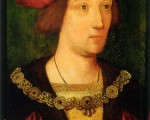
Elizabeth of York, daughter of Edward IV, got pregnant straight after her marriage to Henry VII in January 1486 and the news of her pregnancy was celebrated throughout England. Henry VII, was ecstatic at the news and decided that the birth of his first-born would take place at Winchester, the place believed to have been the capital of the legendary Camelot and the site of King Arthur’s castle, and that the child would be called Arthur. Henry was convinced that Arthur’s birth would bring about a new golden age.
[Read More...]
Here is the transcript of our chat session with Gareth Russell on Friday. The session was very wide ranging in its topics and I think we all learned a lot from Gareth’s knowledge.
[Read More...]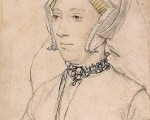
Born on the 22nd March 1519, Katherine Willoughby was the daughter of William, 11th Baron Willoughby, and his wife Maria De Salinis, one of Queen Katherine of Aragon’s ladies. When Katherine was just seven years old. her father died and with no male son surviving Katherine was his heir. In March 1528 Charles Brandon bought the wardship of Katherine from the King for a staggering £2,266 13s 4d with the intention of marrying Katherine to his son Henry. Katherine then came to live with the Brandons to be raised.
Charles Brandon’s third wife, Mary Tudor, Queen of France, died between seven and eight o’clock in the morning on the 25th June 1533. Her funeral was held on the 20th July 1533 at Bury St Edmunds. Katherine attended the funeral and she and her mother brought forward palls of cloth of gold to the altar.
[Read More...]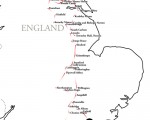
In today’s Claire Chats I discuss the royal progress undertaken by King Henry VIII and his fifth wife, Catherine Howard.
[Read More...]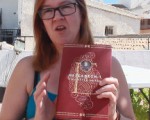
In today’s Claire Chats video, I share with you a letter that the twelve year-old Elizabeth, future Elizabeth I, wrote to her father Henry VIII in December 1545 to preface her trilingual (Latin, French and Italian) translation of Queen Catherine Parr’s “Prayers and meditations”.
[Read More...]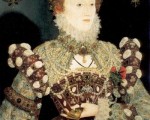
Gloriana, Elizabeth I, is the famous Virgin Queen of England. She never took a husband. Much speculation has swirled around Elizabeth’s decision to remain single. Several tragic, if not traumatic, events are cited as reasons why Elizabeth chose not to marry.
Elizabeth was born on 7 September 1533. On 19 May 1536, when Elizabeth was not quite three years of age, her mother, Anne Boleyn, was beheaded by order of her father. Elizabeth, a precocious child, asked following the fall of her mother, “how haps it governor, yesterday my Lady Princess, today but my Lady Elizabeth?”. Elizabeth’s first step-mother, Jane Seymour, died of puerperal fever in 1537 only days after giving birth to Elizabeth’s little half-brother. Elizabeth was four years old. Katherine Howard, a cousin of Elizabeth’s on her mother’s side and Elizabeth’s third step-mother, was beheaded for high treason for her “dissolute life previous to her marriage” in February 1542. Elizabeth was eight years old.
[Read More...]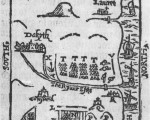
The Battle of Pinkie Cleugh, also known as the Battle of Pinkie, took place near Musselburgh, in Scotland, on the banks of the River Esk, on 10th September 1547. It was a battle of the “War of the Rough Wooing”, so called because it started when Henry VIII tried to force Scotland to agree to a marriage between his son Edward and the infant Mary, Queen of Scots.
[Read More...]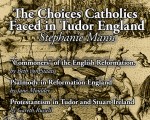
We’re just putting the finishing touches to our October magazine, which as always will be packed with Tudor articles from some amazing historians! Here is the cover teaser reveal…
[Read More...]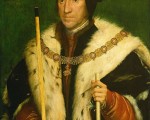
On the 9th September 1513, while Henry VIII was away, busy campaigning against the French, James IV and his Scottish troops crossed the border and challenged the English force, which was headed by Thomas Howard, the Earl of Surrey, at Flodden in Northumberland.
[Read More...]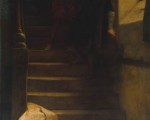
On 8th September 1560, Amy Dudley (née Robsart), wife of Robert Dudley, Earl of Leicester, died at her rented home, Cumnor Place in Oxfordshire.
[Read More...]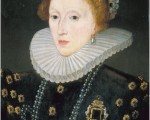
Today is the 482nd anniversary of Elizabeth I’s birth on 7th September 1533, so Happy Birthday Elizabeth!
Elizabeth was the daughter of Henry VIII and his second wife, Anne Boleyn, and she was born at the Palace of Placentia, or Greenwich Palace.
[Read More...]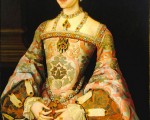
Catherine Parr was a fascinating lady, but how much do you know about this queen consort of Henry VIII?
[Read More...]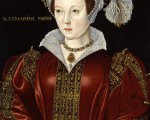
Catherine was born in 1512, most likely in London or Buckinghamshire. Her parents were Sir Thomas Parr, a favourite of King Henry VIII during his early reign, and Maud Parr, who served as a lady-in-waiting to Henry VIII’s first wife Katherine of Aragon. It is believed that Catherine was named after the Queen. Catherine had a younger brother named William, born in 1513 and a younger sister named Anne born in 1515.
[Read More...]
In today’s Claire Chats, on the anniversary of Robert Dudley’s death on 4th September 1588, I talk about his death, the very last letter he wrote to Elizabeth I and her reaction to news of his death.
[Read More...]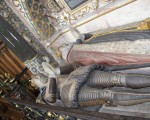
Today is the anniversary of the death of Robert Dudley, Earl of Leicester. He died on 4th September 1588 at his lodge at Cornbury, near Woodstock in Oxfordshire.
[Read More...]
Back by popular demand, historian and author Gareth Russell is our September speaker. Gareth is the author of A History of the English Monarchy,An Illustrated Introduction to the Tudors and The Emperors: How Europe’s Greatest Rulers Were Destroyed by World War I, and he is currently working on a biography of Catherine Howard, Henry VIII’s fifth wife. He is a wonderful speaker and we’ve enjoyed hosting him here before.
[Read More...]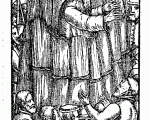
“The Martyrdom of Robert Samuel, Preacher, suffering for the true defence of Christ’s Gospel” is the title of the chapter of martyrologist John Foxe’s account of the imprisonment and death of Robert Samuel, former minister of East Bergholt Church in Suffolk, who was burned at the stake on 31st August 1555. Samuel was one of the Ipswich Martyrs, one of nine people who were executed between 1515 and 1558 for their Lollard or Protestant beliefs.
[Read More...]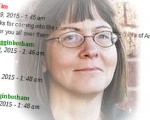
For those who were not able to get to our live chat with Susan Higginbotham – you really missed a special chat – here is the transcript where we discuss John Dudley.
[Read More...]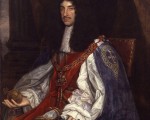
Today we’re broadening our focus to the kings and queens of Great Britain. Test your knowledge with this fun quiz.
[Read More...]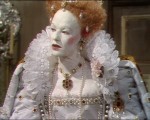
As part of Gareth Russell’s book tour for “A History of the English Monarchy: From Boadicea to Elizabeth I”, I’m delighted to welcome Gareth to the Tudor Society today, which is his home from home anyway! I hope you enjoy his article and please see the bottom of this post for details on how to enter the giveaway for a copy of his wonderful book. Over to Gareth…
Elizabeth I’s decline began in her moment of apotheosis. The defeat of the Spanish Armada coincided with the death of Robert Dudley, Earl of Leicester. In the middle of the victory celebrations, the Queen received the news that her childhood friend-turned-adult-love had passed away and she was heartbroken. It has long been surmised that Elizabeth would have married Leicester had he not already been married and his first wife, Amy Dudley (née Robsart), had not then been found dead in circumstances that looked suspiciously like murder or suicide. However, during a bout of serious illness when she thought she was about to die, Elizabeth made a point of denying that she had ever taken Leicester into her bed, no matter how much she loved him. Despite mountains of speculation then and since, there is in fact no firm evidence at all to suggest that Elizabeth I was not a virgin as she claimed. The risk of pregnancy, the loss of her reputation, death in childbed or yielding her authority to a man made celibacy by far her safest choice. We will never know, of course, what happened every day and night of her life, but it is worth pointing out that it should not be taken as axiomatic, as it too often is, that Elizabeth Tudor lied about her life-long virginity.
[Read More...]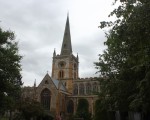
In today’s Claire Chats, I share with you some information on Holy Trinity Church, where Shakespeare was baptised and buried, along with photos Tim took on our recent visit.
[Read More...]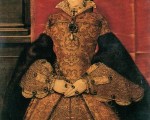
The following letter was written by Princess Mary, the future Mary I, to her brother Edward VI on 19th August 1551. Henry Ellis, editor of “Original Letters, Illustrative of English History…” explains:
“The following Letter from the Princess Mary to her brother, is preserved upon the Books of the Privy Council. It is probably the best specimen which we have in our power to give of her talent at writing: and, with the singular Paper which follows it by way of comment, will show her to have been a woman of more intellect than the world has usually supposed. Queen Catherine Parr took great pains in the education both of Mary and Elizabeth.
[Read More...]